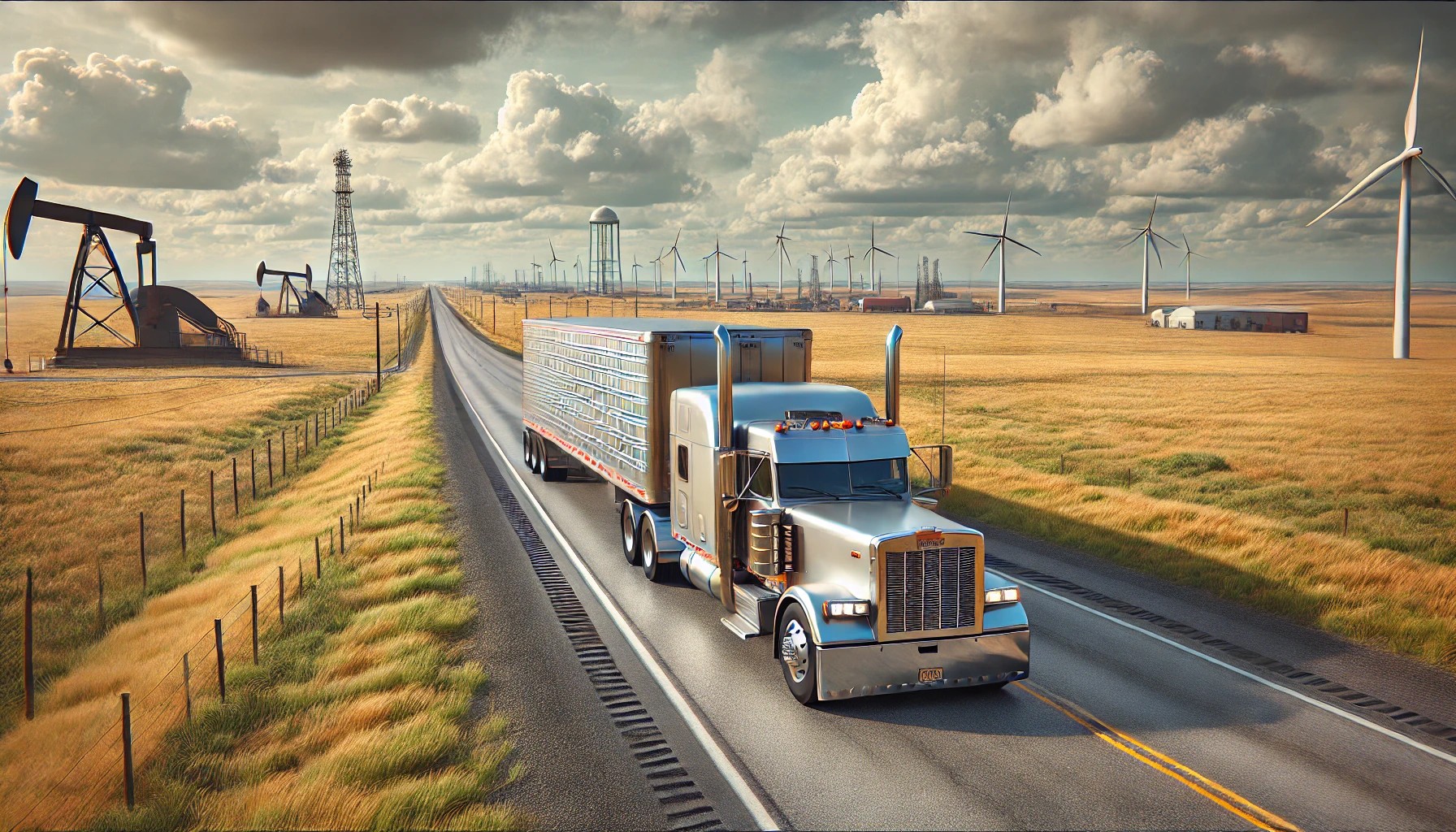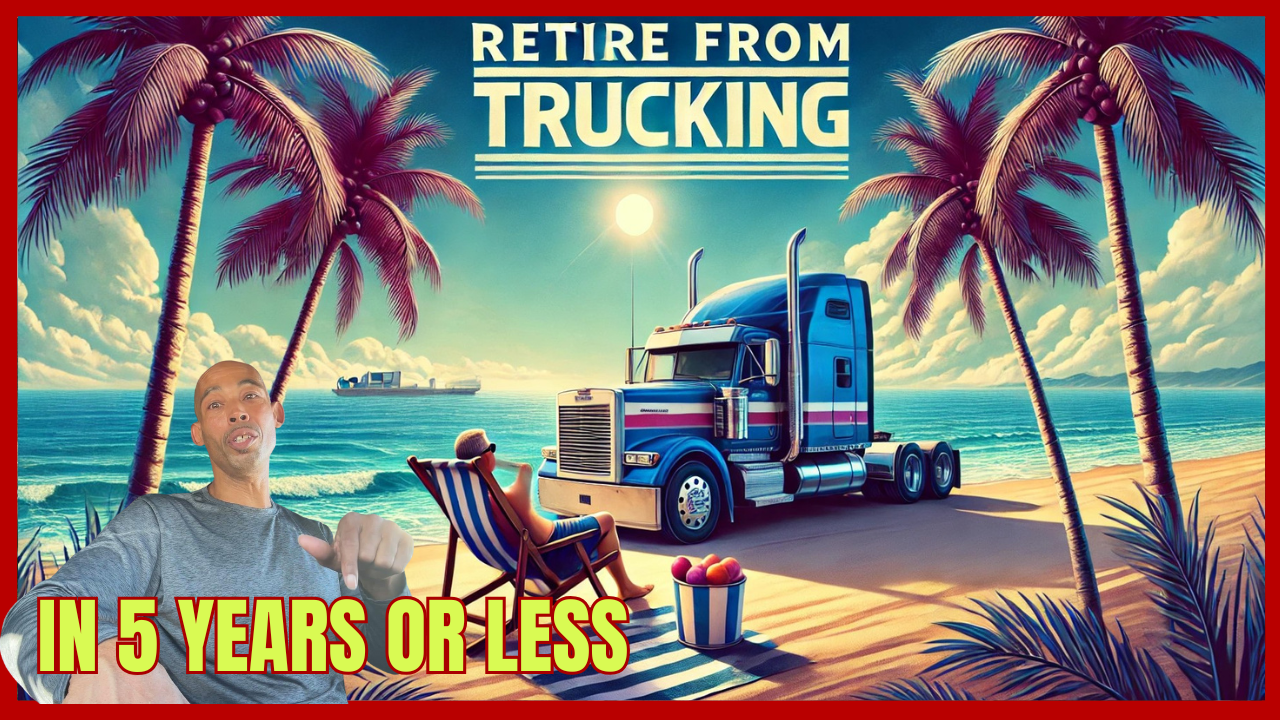Trucking IQ - How much do you know?
Loading...
⚠️ SECTION 1 COMPLETE
Points Accumulated:
If your score wasn't perfect don't worry.
You are here to learn. We make it fun!
Now, let's see if you know the "Unspoken Rules."
These are the habits that take you from Rookie to Professional.
Loading...
🎉 Assessment Complete!
Where should we send your results?
🔒 Your results are private.
Includes free Trucker Success Tips.
🏆 YOUR TRUCKING IQ
Your Final Score:
We will explain all of the answers inside the Trucker Success Quickstart.
Click above to access the full breakdown and training.
Trucking Life in Oklahoma

Oklahoma might not always make headlines in the trucking world, but don’t let that fool you—if you’re a trucker based in the Sooner State, you’re right in the middle of the action. With major freight routes, a strong oil and agriculture industry, and some of the lowest living costs in the country, Oklahoma truckers enjoy solid opportunities and good old-fashioned elbow room. Let’s hit the road and break down what life is really like behind the wheel in Oklahoma.
Oklahoma: Crossroads of the South, West, and Midwest
Situated smack dab in the center of the country, Oklahoma is a key freight corridor connecting Texas to the North, the Midwest to the Southwest, and the East Coast to the Rockies. Truckers based here can cover a lot of ground without being too far from home.
Major highways include:
- I-35 – A major north-south route running from Texas through Oklahoma City and into Kansas.
- I-40 – An east-west lifeline stretching from North Carolina to California, right through Oklahoma.
- US-69, US-75, and US-412 – Key regional roads connecting smaller cities and rural freight.
Whether you’re doing local runs or long-haul freight, Oklahoma offers routes that make logistical and financial sense.
Perks of Trucking in Oklahoma
1. Low Cost of Living
Let’s talk dollars. Housing, fuel, insurance, food—you name it, it costs less in Oklahoma. That means more of your paycheck stays in your pocket. Owner-operators especially benefit from reduced overhead and cheaper equipment storage.
2. Central Location
Oklahoma gives you easy access to Dallas, Kansas City, Denver, Memphis, and even Atlanta with just a day’s drive. It’s the perfect base for regional hauls and a great jumping-off point for OTR (over-the-road) drivers.
3. Variety of Freight
The state’s economy keeps truckers busy year-round. You’ve got:
- Oil and Gas Equipment – Hauling machinery, pipes, and chemicals.
- Agricultural Loads – Livestock feed, grains, hay, and more.
- Retail and Distribution – Thanks to warehouses and distribution centers around Tulsa and OKC.
- Flatbed Hauling – With construction booming and rural development ongoing, flatbed jobs are plentiful.
You can run specialized, local, or long-haul loads all within a manageable radius. This kind of variety gives Oklahoma drivers flexibility and steady income potential.
4. Truck-Friendly Roads and Infrastructure
Most highways in Oklahoma are wide, well-maintained, and not as jammed as in major metro states. With truck stops like Love’s (which started in Oklahoma City), you’ll always find familiar places to fuel up and shut down. Oklahoma's Department of Transportation also works closely with the trucking industry to improve safety and efficiency on key corridors.
5. Less Traffic, More Miles
Oklahoma’s cities are trucker-friendly compared to places like Chicago or Atlanta. Less congestion means more time rolling and fewer headaches. That means fewer hours wasted idling, and more hours building revenue.
6. Tight-Knit Trucking Community
Oklahoma has a strong tradition of blue-collar work and respect for truckers. You'll find camaraderie, support, and a willingness to help—from roadside diners to dispatch offices. Whether you're a rookie or a veteran, you’ll feel the support.

Challenges of Trucking in Oklahoma
1. Crazy Weather
They don’t call it “Tornado Alley” for nothing. In spring and summer, truckers need to watch for sudden storms, high winds, and extreme weather changes. And in winter? Don’t underestimate Oklahoma ice. Flash floods can also wash out rural routes, creating delays and detours.
2. Long Stretches Without Services
Once you leave the metro areas, it can be a long way to the next truck stop or repair shop. Drivers must plan fuel and rest breaks carefully, especially when hauling through rural western Oklahoma. Make sure you carry extra supplies like water, snacks, and basic tools.
3. Limited Urban Freight
Tulsa and Oklahoma City offer some solid freight, but beyond that, freight density drops. You might need to deadhead more than you’d like or get creative with your backhauls. Local deliveries can be scarce in more remote areas, so regional flexibility is key.
4. Wind, Wind, and More Wind
If your trailer is light, get ready to fight some serious crosswinds. Oklahoma’s flatlands are notorious for gusts that can tip over careless drivers. Know your weight, watch your speed, and be ready to adjust your route. Many experienced drivers recommend avoiding north-south routes during high-wind advisories.
5. Rural Hazards
From deer to narrow county roads to the occasional cattle drive, rural Oklahoma comes with its own set of challenges. Local knowledge can make a huge difference. Knowing which roads are paved, which bridges can handle your weight, and how to handle open range crossings are must-haves in your skillset.
Best Trucking Jobs for Oklahoma Drivers
- Oilfield Hauling – Hotshot, flatbed, tankers, and more.
- Agricultural Freight – Grain, livestock feed, fertilizer, and hay.
- Flatbed Hauling – Construction materials and rural development gear.
- Dry Van Regional Work – Serving DFW, KC, Memphis, and OKC.
- Tanker and Hazmat – Fuel and chemical delivery throughout the Southwest.
- Local LTL Work – In and around Tulsa and Oklahoma City.
- Interstate OTR Runs – Long-haul loads moving east or west via I-40.
Tips for New Truckers in Oklahoma
- Always Check the Weather – Conditions can go from sunny to hailstorm in minutes.
- Stay Wind Aware – Don’t take gust warnings lightly. Park it if you have to.
- Know Your Back Roads – GPS isn’t always right in rural Oklahoma.
- Fuel Smart – Take advantage of cheaper fuel prices, but don’t push your luck between stops.
- Join Local Facebook Groups – Oklahoma trucker communities are tight-knit and willing to share parking tips, load leads, and warnings about trouble spots.
- Keep Extra Gear – A roadside safety kit, extra DEF, and a set of tire chains can be lifesavers.
- Mind Your Speed – Rural areas have unpredictable speed traps and small-town cops who take their job seriously.
The Bottom Line: Is Oklahoma a Good State for Truckers?
Absolutely. Oklahoma might not be the flashiest state for freight, but it’s one of the most practical. With solid freight options, great geographic location, and a low cost of living, truckers from Oklahoma are in a strong position to earn and grow.
Sure, you’ll deal with crazy wind and tornado warnings, but you’ll also enjoy miles of open road, supportive communities, and the kind of hometown grit that built the trucking industry in the first place. For owner-operators, Oklahoma is a dream—low expenses, open land, and freight lanes that keep you moving.
So grab a breakfast burrito from that Love’s off I-35, check your tie-downs, and roll on. If you’ve got diesel in your blood and boots on your feet, Oklahoma’s got a lane with your name on it. And if you hustle smart and drive safe, you just might find success waiting at the next stop.
Commercial Driver Local Resources
Please post your trucker friendly local resource. Start with the City.
In the descriptions list the name, address and relevant information.
Thanks
What Other Visitors Have Said
Click below to see contributions from other visitors to this page...
need Oklahoma O/Os Crude Oil Haulers ( Tractor, Crude Tanker, Exp. Driver 24/7 Tx, Co. & Okc. 




Seeking Owner Operator Crude Oil haulers with Tractor, Crude oil Tanker and Drivers with crude oil hauling background and experience.
Work is right …








New! Comments
Have your say about what you just read! Leave me a comment in the box below.